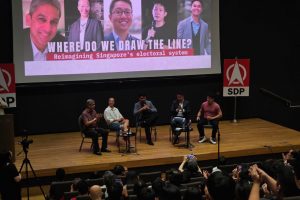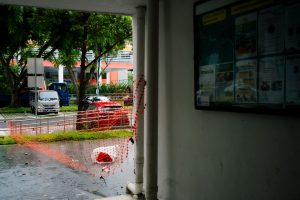Laremy Lee is a writer and educator. In this op-ed for RICE, he argues that building a more diverse Parliament takes time—and that slow, steady progress is key to lasting political change.
Top image: RICE Media
Singaporeans have long rolled their eyes at the stereotypical Asian parent mentality that often defines societal attitudes towards learning and education.
You know how it is; nothing is ever quite good enough. An A- is dismissed for not being an A. One’s accomplishments are frequently measured against those of others, prompting questions like: “Why you never score higher than your friend?”
Though we have since come to decry this attitude whenever it rears its ugly head, it’s strangely ironic to see that same spirit unabashedly manifest itself after the dust had settled on GE2025.
Much of the public reaction thus far, from those who desire more pluralism in Parliament, has been to lambast and lampoon opposition parties for their perceived failure to wrench more constituencies away from the ruling People’s Action Party (PAP).
Worse still is the hand-wringing over Singapore’s supposed failure to mature as a democracy, simply because more non-PAP voices haven’t been elected to Parliament to offer broader, more incisive perspectives.
The dismay is understandable. It speaks to the “divine discontent” in our Singaporean DNA, which then-Prime Minister Lee Hsien Loong described in 2016 in his National Day Rally speech as a function of us being “always not quite satisfied with what we have, always driven to do better”.
Nevertheless, while the disillusionment is understandable, it may be misplaced—highlighting instead an opportunity for a hopeful, collective mindset shift among Singaporeans and their leaders. One that can lay the foundation for a stronger, more resilient future in the next six decades to come.
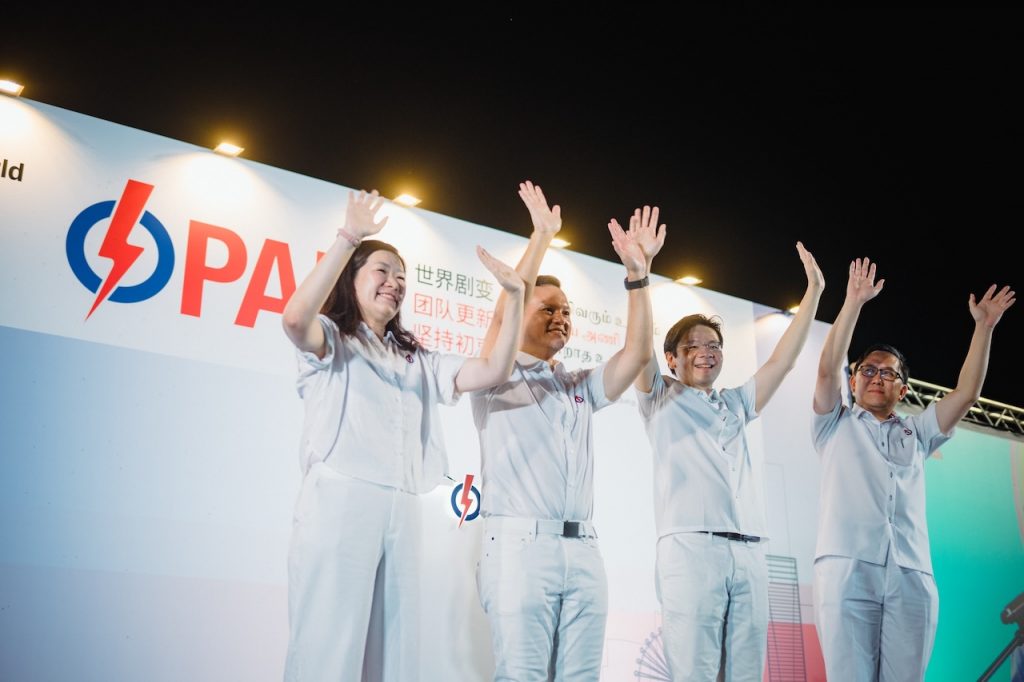
Moving Past the Pass/Fail Lens
Aside from the constituencies of Aljunied, Hougang, and Sengkang, it’s unhelpful to assess opposition parties’ performance through a strict pass/fail lens.
This kind of binary thinking—where success means winning a constituency and failure means not—is reductive. It ignores the long arc of political evolution and the many steps between now and a more pluralistic Parliament in the future.
Sure, there are moments where pass/fail frameworks are useful. In education, for example, universities have long used pass/fail grades to encourage exploration outside one’s academic comfort zone without risking GPA.
In 2023, the Ministry of Education made the call to remove Project Work from university admissions calculations. It is now graded on a pass/fail basis, giving students more freedom to pursue interests without worrying about performance.
But in politics, a pass/fail mindset assumes only one standard of success: an opposition victory. This oversimplifies what meaningful progress can look like in a society that is risk-averse and deeply pragmatic.
Perhaps we’ve become conditioned by instant gratification—food delivery, app downloads, bingeable content. When change doesn’t happen immediately, it feels like failure.
But real progress—whether political or personal—is often slow, non-linear, and hard-won. It may not always show up in seat counts.

Beyond the Ballot Box
Take the Workers’ Party’s showing in constituencies like East Coast, Jalan Kayu, Punggol, Tampines Changkat, and Tampines. Despite fielding many fresh faces and having just nine days of campaigning, WP candidates scored between 41 and 49 percent.
That the candidates received such strong scores also underscores why using a pass/fail lens to interpret these results is unhelpful in a Singapore context. The average Singaporean is more likely to vote for someone familiar, backed by a party with a recognisable brand and proven track record.
These are all the traits an incumbent, regardless of party affiliation, enjoys. It’s why any contender for these constituencies had and will continue to have their work cut out for them.
Instead of a pass/fail verdict, a more constructive lens borrows from education: grade boundaries and performance descriptors. For instance, an A grade might have a grade boundary of 80 marks and above, a B grade might have a grade boundary of 70 to 79 marks, and so on.
In essence, performance descriptors define the competencies demonstrated at each grade level, offering a clearer picture of what differentiates an A from a B.
Let’s examine this concept in the realm of politics. A vote share below 25 percent often represents the base-level protest or anti-PAP vote—the kind anyone on the ballot might attract.
But once a candidate crosses 35 percent, that suggests something more: they’ve moved beyond just drawing protest votes. They’re beginning to persuade swing voters. They’re establishing a foothold. Mountbatten SMC’s independent candidate, Jeremy Tan, successfully did this when he polled 36.16 percent even without the backing of any party.
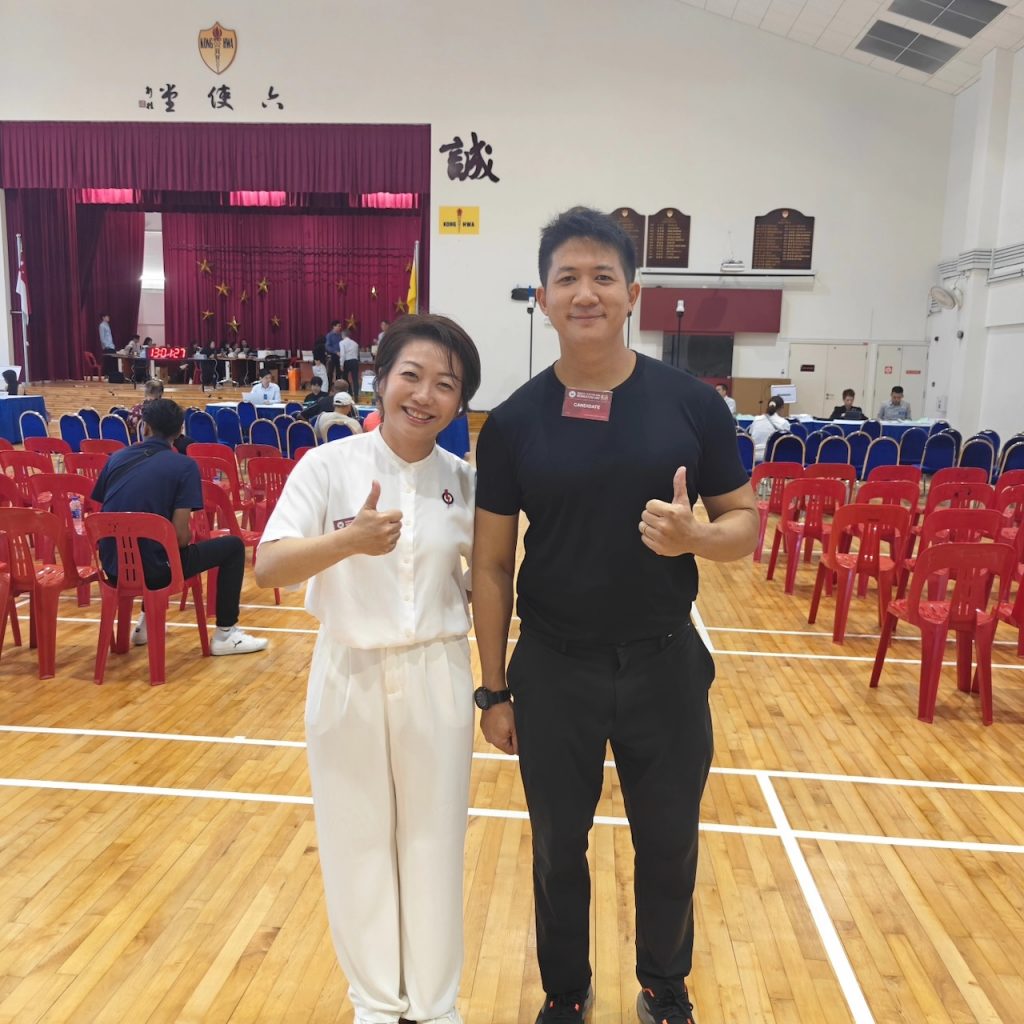
Candidates in the 35 to 49 percent range could be seen as the ‘potentials’. It’s a cautious endorsement. Voters are saying: We like you. You seem credible. But we need to see more. Stay with us. Walk the ground. Show up again.
This echoes Everett Rogers’ Diffusion of Innovations theory, which explains how new ideas, behaviours or technologies spread through societies in stages. Candidates in the ‘potential’ range have already reached the innovators and early adopters. The next step is to convince the rest by building credibility, consistency, and connection.
The feasibility of this strategy has been shown through WP’s romp to victory in Aljunied GRC in the GE2011 with a 55 percent margin after their initial attempt in 2006, led by Sylvia Lim, saw them receive 44 percent of the votes cast.
Granted, GE2011 was unique in terms of the high societal dissatisfaction over an array of issues, which could possibly have created a tipping point that gave the WP team an edge over their PAP opponents.
But WP’s groundwork mattered. Sylvia Lim remained visible as a Non-Constituency MP. In addition, the WP slate was credible: it was led by Lim and joined by Low Thia Khiang, Chen Show Mao, Faisal Manap, and Pritam Singh.
It wasn’t an overnight success—it was strategic persistence.
Why Parliamentary Pluralism Matters
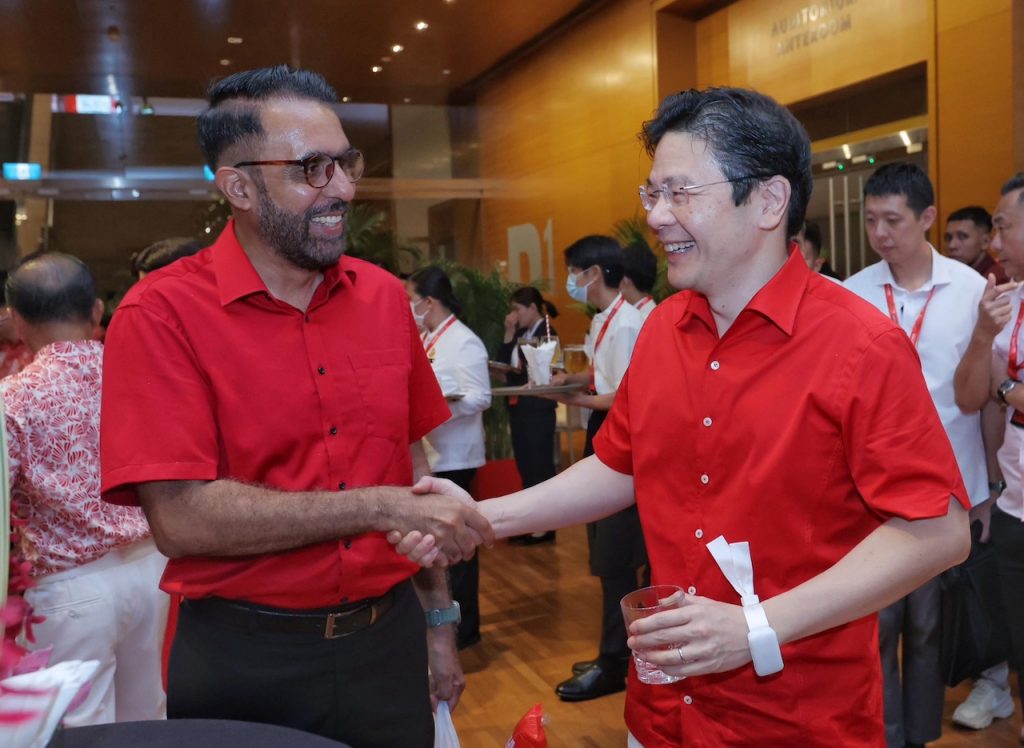
For any opposition to cross the next threshold, they must sharpen their value proposition. And part of that involves making the case for why greater parliamentary pluralism matters.
Parliamentary pluralism isn’t just about having more non-PAP MPs for balance. It’s about creating space for diverse viewpoints, backgrounds, and life experiences in policymaking.
That diversity goes beyond race, religion, and gender. It includes socioeconomic background, education, profession, lived experience, and ideological perspectives. It’s about reflecting the full texture of Singaporean society.
While the PAP could theoretically achieve plurality to some degree if it were to fill all 97 seats in Parliament, a pluralistic system cannot be truly pluralistic if only one group dominates power indefinitely, even with the best of intentions.
To be clear, the PAP has governed Singapore with immense capability for over 65 years. The party continues to attract top talent and execute leadership transitions with strategic foresight. Its sustained focus on leadership renewal suggests a deliberate and well-considered approach to talent management, grounded in the understanding that continuity is essential to long-term national stability.
Singapore’s international reputation and domestic stability owe much to this careful stewardship. Succession planning, deep bench strength, and rigorous governance have been hallmarks of PAP leadership.
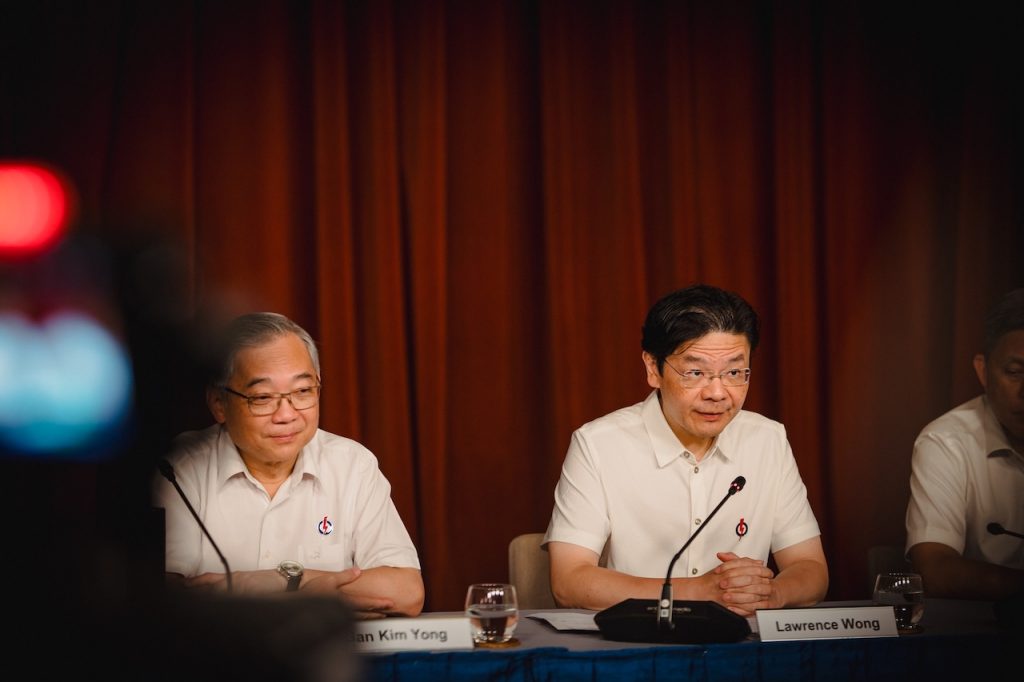
But in a maturing democracy, talent management must evolve beyond the party level to a system-wide national ecosystem. Our politics must be resilient not because of any one party, but because of its capacity to accommodate difference and harness it for the national good.
The creative and constructive tension of parliamentary pluralism will help our country thrive, especially in a future where collaborative problem-solving and adaptability are essential to navigating complex global challenges.
The Politics of Persistence
So perhaps it’s time we reframe how we think about political progress in Singapore. At this milestone in Singapore’s journey, it is tempting to continue to channel our inner Asian parent and ask doubtfully: “Sure or not? Can or not?”
Rather than ask “Why didn’t they win?”, we could ask: “How much further did they get?”
Rather than fixate on a pass/fail outcome, we could track how candidates (incumbent or opposition) are growing support, building trust, and gaining ground with each election cycle.
Progress won’t always be flashy. It may look like a few hundred more votes. It could look like a slightly stronger showing in a marginal ward.
But all of this matters because it lays the groundwork for future breakthroughs. Just as we have expanded our understanding of what success looks like in education—and in life—so too must we evolve our expectations of democratic development.
Change doesn’t happen just because we want it. It happens because people earn it, and because we recognise the signs when it’s slowly, steadily arriving.




